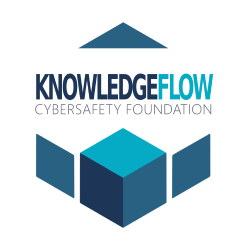
PDday for Teachers Across Canada
Modules 1-4 out now!
Join us for ICTC’s PDday (Professional Development Day), a day to empower K-12 teachers with essential digital literacy, cybersecurity, and AI integration skills. Through five engaging scenario-based modules; teachers will explore real classroom challenges, discover ready-to-use lesson resources to help their students thrive safely and responsibly in a digital world, and receive up to 7 hours of certified PD micro-credentials.
📌 Overall Module Objectives
These modules will help teachers to:
- Build digital citizenship and cybersecurity skills,
- Spot and combat disinformation,
- Implement effective AI integration in classrooms,
- Align with curriculum standards, and
- Get access ready-to-use lessons and activities.
Click a module title below to view its description.
Curriculum Linkage Examples 🔗
Teachers can connect what they have learned to their curriculum:
- Ontario Curriculum (as example):
- Health and Physical Education (Grades 1-8): Helps students develop a better understanding of health relationships with technology and how to maintain their digital wellbeing.
- Language (Grades 1-8): Helps students develop digital media literacy, design, and analysis skills as well as improve their understanding of the effects of technology on the world.
- Computer Studies (Grades 10-12): Helps students understand basics of computers, the Internet, and programming.
- Science and Technology (Grades 1-8): Helps students develop technological problem-solving skills and improve their understanding of the relationships between science, technology, society, and the environment (STSE); relevant to disinformation and AI.
Register below for PDday to gain immediate access to the series of modules as soon as they are released. ⬇️
PDDAY 2025
The Information and Communications Technology Council (ICTC) is a neutral, not-for-profit national centre of expertise with the mission of strengthening Canada’s digital advantage in the global economy. For over 30 years, and with a team over 100 experts, they have delivered forward-looking research, practical policy advice, and capacity-building solutions for individuals and businesses. ICTC’s goal is to ensure that technology is utilized to drive economic growth and innovation and that Canada’s workforce remains competitive on a global scale. ICTC’s PDday is funded by the Government of Canada’s CanCode Initiative.



